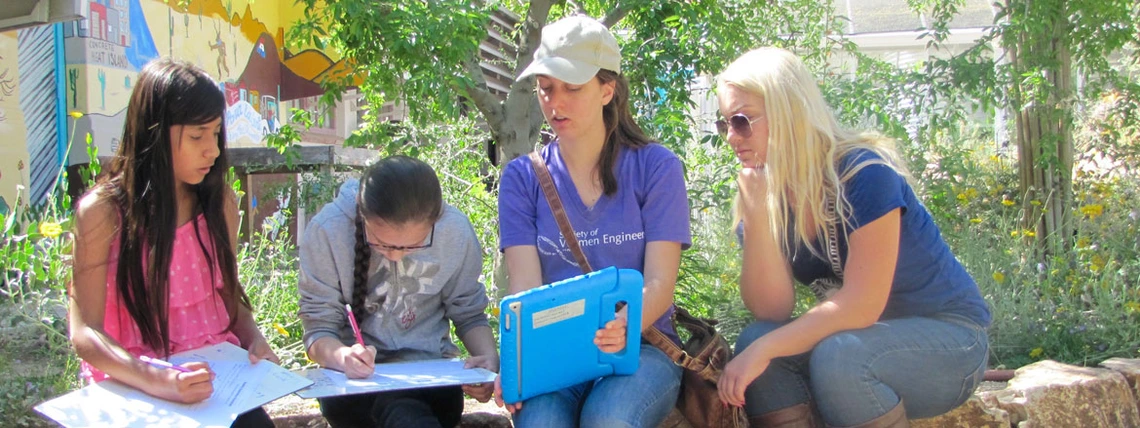Community-University Teams Launch Projects to Green Streets in South Tucson

The Agnese Nelms Haury Program in Environment and Social Justice is pleased to announce its awarded Spring 2016 Seed Grant project recipients: Green Streets in South Tucson, led by Katie Gannon, and The Bio/Diversity Project: Fostering Interest and Diversity in Environmental Science through the Lens of Biodiversity, led by Jill Williams.
Proposals for seed funding include both University of Arizona (UA) and community partners. These grants allow new projects and programs to address systemic change in environmental and social justice challenges. Twenty teams submitted project proposals for seed funding in Spring 2016. The Haury Program is confident in adding Green Streets in South Tucson and The Bio/Diversity Project to the four projects selected last Fall 2015 as seed grant recipients.
Katie Gannon, Program Director of Tucson Clean & Beautiful, Inc. (TCB), is head of Green Streets in South Tucson. This one-year project embodies the Haury Program’s core focus areas of resiliency, climate change, water use, pollution, and land-use change. Partnering with UA Garden Kitchen and the City of South Tucson, TCB strives to promote change in social, environmental, and economic conditions in the local community. Green Streets will provide landscape employment training for adults sentenced to serve community restitution through Pima County Superior Court. The recruits will plant 300 new trees to green four main streets in South Tucson. These trees will reduce future “heat island” effects by providing cooling and improving air quality. These steps strengthen the resiliency of vulnerable communities during heat waves and drought.
This small project can produce a large impact. “This collaboration leverages partner resources and builds on opportunities that already exist; it makes deep investments in both people and community environments,” says Gannon. Offenders are given an opportunity to restore themselves through employment while improving the community. In the meantime, new tree life will produce benefits that grow with time. Learn more about the project.
Jill Williams, Director of the Women in Science and Engineering (WISE) Program at the University of Arizona, leads a two-year project to address issues in social equity, biodiversity loss, education, and underrepresented groups. The Bio/Diversity Project: Fostering Interest and Diversity in Environmental Science through the Lens of Biodiversity includes partners from WISE, Friends of Saguaro National Park and the Arizona-Sonora Desert Museum. The goal of this project is to increase the diversity of voices involved in environmental issues; particularly women, Latino/a, and Native American populations. These populations are under-represented among those receiving university degrees in environmental science related fields and entering the workforce.
The partners will collaborate to execute a strategy that increases K-12 student access to environmental science curriculum. In addition, the program will provide training and mentoring opportunities for UA students in order to expose them to careers in Science.
An app called “iNaturalist” will be utilized to allow students to take a picture of a species and receive an identification of the species from a research scientist. This app engages students to record a local and global sense of biodiversity.
Williams states, “The huge impact we want to make: to interest K-12 students in environmental science, train university students for employment in the science field, and increase the diversity of voices involved in environmental decisions would not be possible without Haury Program’s gracious funding.”
The Agnese Nelms Haury Program in Environment and Social Justice at the University of Arizona was established on a legacy. This legacy is among the largest ever to the University, from the estate of philanthropist and activist Agnese Nelms Haury. This program leverages the power of university-community partnerships to address environmental and social justice challenges. Seed grants recipients carry on Mrs. Haury’s bequest of service and outreach to make a changing impact on the world.
